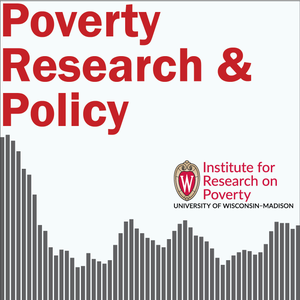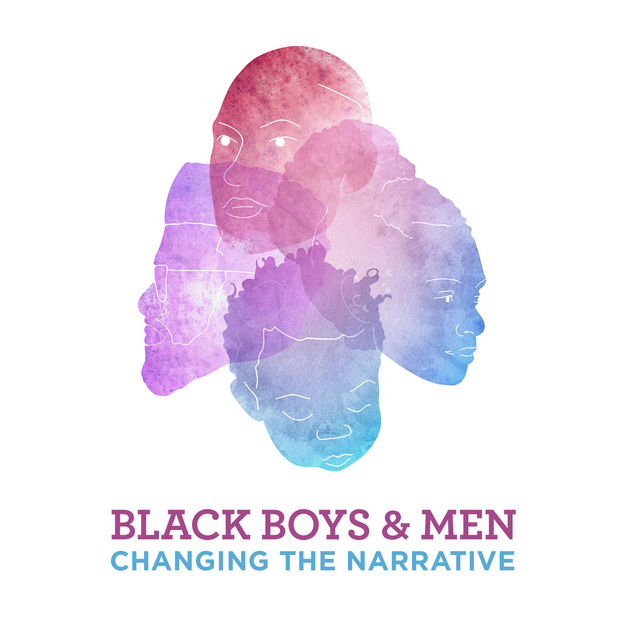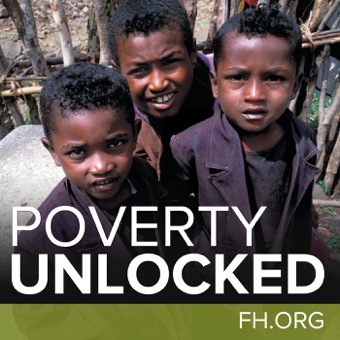
Poverty Research & Policy
Institute for Research on Poverty
- 31 minutes 37 secondsMarci Ybarra on Challenges for Latina Mothers Before and During the COVID-19 Pandemic
COVID-19 interrupted life on multiple levels for many people regardless of race, economic class, or citizenship. For Latina mothers who either lacked legal status or were part of a mixed-status household, the pandemic intensified the challenges they faced even before this health and economic crisis. In their paper, “No Calm Before the Storm: Low-Income Latina Immigrant and Citizen Mothers Before and After COVID-19,” Dr. Marci Ybarra and Francia Mendoza Lua share insights gained through interviews with Latina moms in Chicago before and during the pandemic.
Dr. Ybarra is an Associate Professor in the Sandra Rosenbaum School of Social Work at the University of Wisconsin–Madison and is an IRP Affiliate. Her research interests include welfare reform, paid family leave, the children of immigrants, and the socioeconomic well-being of low-income families.
1 April 2024, 1:54 pm - 28 minutes 2 secondsJesse Rothstein On Ways To Reduce Intergenerational Poverty
Experiencing poverty in childhood can hinder a person’s opportunities throughout their own lifetime, and those of their children and grandchildren as well. The National Academies of Sciences, Engineering, and Medicine recently released a report titled “Reducing Intergenerational Poverty.” For this episode, we're joined by Jesse Rothstein, who served as a member of the committee that produced the report. He shares the research and findings on several of the key drivers of intergenerational poverty that the committee identified and examined, as well as what policy approaches may help to interrupt the cycle and why that matters.
Dr. Jesse Rothstein is a Professor of Public Policy and Economics at the University of California, Berkeley. Previously, he was Senior Economist at the U.S. Council of Economic Advisers and then Chief Economist at the U.S. Department of Labor.
19 March 2024, 5:12 pm - 27 minutes 30 secondsMaretta McDonald on Wealth Inequality and Housing Values of Black Meccas in the New South
Black Meccas are cities where it appears that Black communities thrive more-so than other places in the United States. However, the housing values of Black-owned properties in these areas are substantially lower compared to their white counterparts, revealing the presence of wealth inequality even in cities where Black people are thought to experience better overall economic well-being. In this episode, Dr. Maretta McDonald discusses her recent co-authored paper “Wealth Matters: Home Ownership, Housing Values, and the Model Minority Myth of Black Meccas in the New South.”
Maretta McDonald is a 2022-2024 IRP National Poverty Fellow and an Affiliate Faculty of Sociology at Virginia Tech. Her teaching and research focus on racial inequality, criminology, family, gender, and public policy.
23 February 2024, 6:45 pm - 37 minutesIRP Book Talk: Luke Shaefer on “The Injustice of Place: Uncovering the Legacy of Poverty in America”
Where you live can affect the quality of education you receive, your chances of finding a good job, and even how long you might live. In their new book, “The Injustice of Place: Uncovering the Legacy of Poverty in America,” Dr. Luke Shaefer and his co-authors Kathryn Edin and Timothy Nelson create a new way of looking at poverty, called the Index of Deep Disadvantage. Their team spends time in and learns about the communities that have the worst scores, and find that legacies of profound racism, extractive big industry, and crumbling social infrastructure contribute to generations of people struggling to thrive. But even in these communities that face multiple layers of challenge and trauma, there are rays of hope and residents determined to improve their lives and those of their neighbors.
Luke Shaefer is an IRP Affiliate and the Hermann and Amalie Kohn Professor of Social Justice and Social Policy at the Gerald R. Ford School of Public Policy at the University of Michigan. He is a Professor of Social Work, and the Director of Poverty Solutions, also at the University of Michigan.
26 January 2024, 9:53 pm - 21 minutes 3 secondsJessica Pac on the Effects of Child Poverty Reductions on Child Protective Services Involvement
Child Protective Services (CPS) involvement is common, especially for children experiencing poverty, or who are Black or Native American. About a third of children are subject to a CPS investigation before their 18th birthday, but research shows reducing child poverty could help change this. In this episode, Dr. Jessica Pac discusses the recent paper she co-authored titled, “The Effects of Child Poverty Reductions on Child Protective Services Involvement.”
Jessica Pac is an Assistant Professor of Social Work at the University of Wisconsin-Madison. Professor Pac’s research broadly harnesses applied econometric and data science methods to provide novel insight on mandatory reporting behaviors and the effects of antipoverty and work-family policy supports on maternal employment, safety and health, and infant and child safety and health.
8 January 2024, 3:28 pm - 46 minutes 55 secondsWilliam Darity Jr. and Kirsten Mullen on Why It’s Time to Pay Reparations to Black Americans
Reparations for Black Americans is not a new idea—before the U.S. Civil War had ended, there was a proposal to provide freed Black people with “40 acres and a mule.” That did not materialize, and in the ensuing century and a half, the Black descendants of formerly enslaved people have faced systemic injustices, discrimination, and violence. In this episode, Professor William “Sandy” Darity, Jr. and Kirsten Mullen explain what a meaningful reparations program for Black Americans would entail, how eligibility should be determined, and why the federal government is both the “culpable and capable party.”
Sandy Darity is the Samuel Dubois Cook Distinguished Professor of Public Policy, African and African-American Studies, and Economics at Duke University. He is also an IRP Affiliate. Professor Darity's research focuses broadly on stratification; economics on inequality by race, class, and ethnicity; and the economics of reparations. Kirsten Mullen is a writer, folklorist, museum consultant, and lecturer whose work focuses on race, art, history, and politics. Together they are the authors of "From Here to Equality: Reparations for Black Americans in the 21st Century," and are also two of the editors of "The Black Reparations Project, A Handbook for Racial Justice."
5 December 2023, 3:29 pm - 35 minutes 37 secondsDayna Johnson on How Racism and Poverty Contribute to Sleep Disparities
Many people suffer from not getting enough sleep from time to time. But for many people of color and those who are living in low-income neighborhoods and housing, additional factors may contribute to chronic poor sleep quality. Those factors can have long-term impacts on their health and well-being, including higher rates of heart disease, diabetes, high blood pressure, stroke, obesity, and depression.
In this episode, Dr. Dayna Johnson shares her research into how experiences of racism, variable work schedules, and neighborhood conditions contribute to sleep and health inequities for African Americans. Dr. Johnson is a sleep epidemiologist and Assistant Professor in the Department of Epidemiology at the Rollins School of Public Health of Emory University. Her research is aimed at understanding the causes and health consequences of sleep health disparities.
27 November 2023, 8:51 pm - 19 minutes 38 secondsTiffany Green on How Charging Dads for the Medicaid Costs of Their Baby’s Birth Affects Child Support
Wisconsin is one of a few states with a Birth Cost Recovery program, which bills unmarried, non-custodial fathers for the birth costs of their child when the mother is on Medicaid. But the impacts of these policies on the children and both parents have not been studied closely.
In this episode, Dr. Tiffany Green discusses the report that she co-authored titled, “Effects Of Medicaid Birth Cost Recovery Policy Changes On Child Support Outcomes,” which draws on IRP’s Wisconsin Administrative Data Core (WADC). Tiffany Green is an associate professor in the Departments of Population Health Sciences and Obstetrics and Gynecology within the School of Medicine and Public Health at the University of Wisconsin–Madison and is an IRP Affiliate.
8 November 2023, 3:07 pm - 42 minutes 12 secondsJamila Michener on How State Interference with Local Housing Policy Impacts Tenant Health and Racial Equity
Whether renters have access to safe, high-quality housing has serious implications for health and health equity. Local housing policy often focuses on community residents’ particular needs, yet state law can preempt local ordinances, frequently with detrimental results. In this episode, Dr. Jamila Michener discusses two of her recent papers, “Entrenching Inequity, Eroding Democracy: State Preemption of Local Housing Policy” and "Racism, Power, And Health Equity: The Case of Tenant Organizing.”
Jamila Michener is an Associate Professor of Government and Public Policy at Cornell University. She studies poverty, racism, and public policy, with a particular focus on health and housing. She is Associate Dean for Public Engagement at the Brooks School of Public Policy. Dr. Michener has also been named the inaugural director of Cornell’s Racial Justice and Equitable Futures Center. She is a former IRP Emerging Poverty Scholar Fellow and a current IRP Affiliate.
24 October 2023, 8:11 pm - 23 minutes 3 secondsCrystasany Turner on the Strengths, Challenges, and Cultural Assets of Family Child Care Professionals
Family child care is the care of non-relative children within the providers' home. Thirty percent of family child care professionals are women of color, and oftentimes the cultural assets they contribute to the field of early care and education are diminished or disregarded. In this episode, Dr. Crystasany Turner discusses her research highlighting both the strengths and challenges faced by family child care professionals, future research, and practices to support family child care professionals.
Crystasany Turner is an Assistant Professor of Early Childhood Education in the Department of Teaching and Learning at the University of Wisconsin-Milwaukee. Rooted in Black feminist epistemologies, her teaching and research focus on culturally sustaining and liberatory practices in early childhood education and teacher education.
6 October 2023, 3:19 pm - 31 minutes 52 secondsIRP Book Talk: Zach Parolin on “Poverty in the Pandemic: Policy Lessons from COVID-19”
In his new book, Dr. Zachary Parolin explores three perspectives on poverty—poverty as a risk factor, poverty as an expression of access to current resources, and poverty as a stratifying factor—and how they affected people during the COVID-19 pandemic. He advocates for policy approaches that will both prepare us for the next large-scale economic disruption and provide timely assistance when upheaval occurs, and makes the case for more frequent, and more nuanced poverty measures.
Zach Parolin is an Assistant Professor of Social Policy at Bocconi University in Milan, Italy, and a Senior Research Fellow at Columbia University’s Center on Poverty and Social Policy. His new book, “Poverty in the Pandemic: Policy Lessons from COVID-19,” was published by the Russell Sage Foundation.
7 September 2023, 3:49 pm - More Episodes? Get the App
Your feedback is valuable to us. Should you encounter any bugs, glitches, lack of functionality or other problems, please email us on [email protected] or join Moon.FM Telegram Group where you can talk directly to the dev team who are happy to answer any queries.
 McSilver Institute for Poverty Policy and Research
McSilver Institute for Poverty Policy and Research
 Poverty Unlocked
Poverty Unlocked
 Wealth & Poverty from Marketplace APM
Wealth & Poverty from Marketplace APM
 OFF-KILTER with Rebecca Vallas
OFF-KILTER with Rebecca Vallas